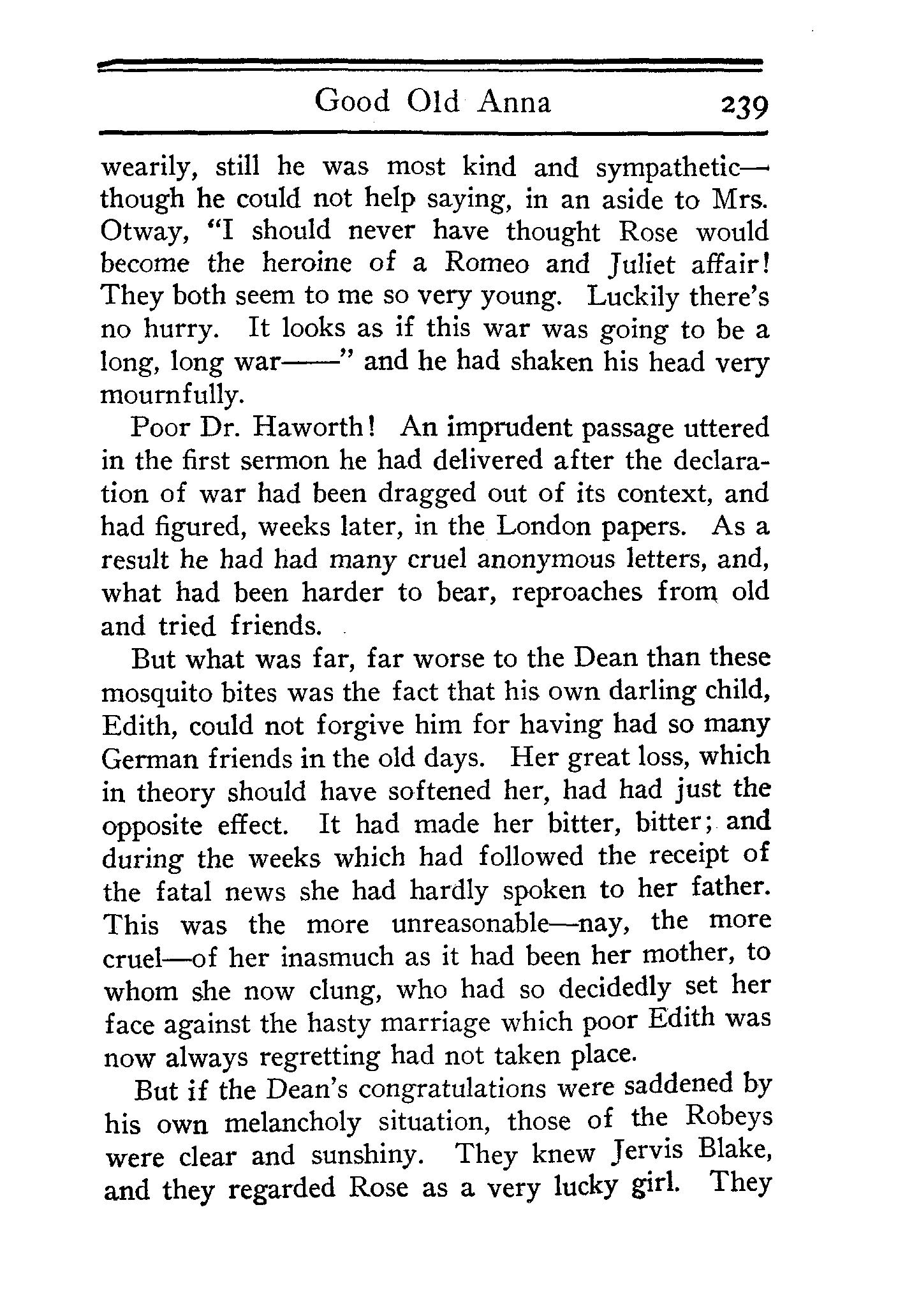 p238 _
-chap- _
toc-1 _
p239w _
toc-2 _
+chap+ _
p240
p238 _
-chap- _
toc-1 _
p239w _
toc-2 _
+chap+ _
p240
wearily, still he was most kind and sympathetic --
though he could not help saying, in an aside to Mrs.
Otway, "I should never have thought Rose would
become the heroine of a Romeo and Juliet affair!
They both seem to me so very young. Luckily there's
no hurry. It looks as if this war was going to be a
long, long war----" and he had shaken his head very
mournfully.
Poor Dr. Haworth! An imprudent passage uttered
in the first sermon he had delivered after the declaration
of war had been dragged out of its context, and
had figured, weeks later, in the London papers. As a
result he had had many cruel anonymous letters, and,
what had been harder to bear, reproaches from old
and tried friends.
But what was far, far worse to the Dean than these
mosquito bites was the fact that his own darling child,
Edith, could not forgive him for having had so many
German friends in the old days. Her great loss, which
in theory should have softened her, had had just the
opposite effect. It had made her bitter, bitter; and
during the weeks which had followed the receipt of
the fatal news she had hardly spoken to her father.
This was the more unreasonable -- nay, the more
cruel -- of her inasmuch as it had been her mother, to
whom she now clung, who had so decidedly set her
face against the hasty marriage which poor Edith was
now always regretting had not taken place.
But if the Dean's congratulations were saddened by
his own melancholy situation, those of the Robeys
were clear and sunshiny. They knew Jervis Blake,
and they regarded Rose as a very lucky girl. They
[[239]]
p238 _
-chap- _
toc-1 _
p239w _
toc-2 _
+chap+ _
p240